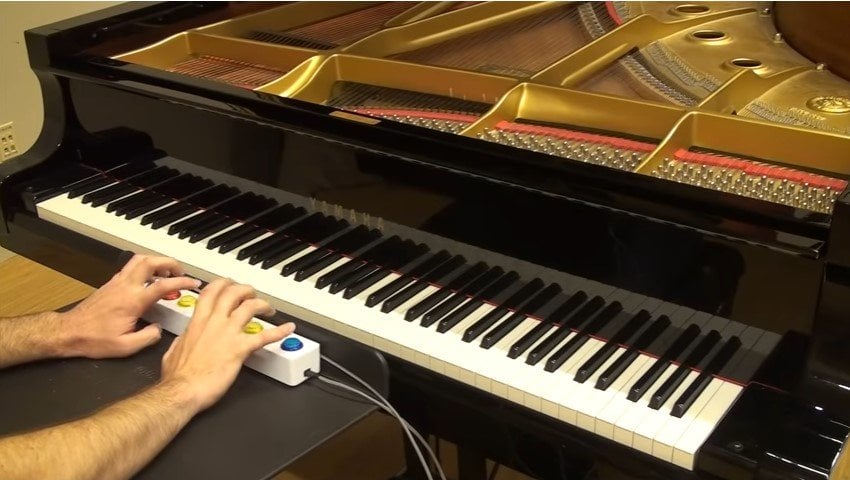Machine-learning algorithms are becoming more frequent, and they allow us to do brilliant things, some of which we wouldn’t be good at without them. The latest example of a successfully-written machine-learning algorithm comes from Google’s research team Magenta, which created the AI-powered Piano Genie, a program which allows users to practice playing the piano by simply tapping at eight buttons.
The team which made the AI-powered Piano Genie was initially inspired by Guitar Hero, a game that uses a fun approach to teach gamers how to play an instrument. To make unique music for users to play, scientists created an AI program, and they taught it to play by providing it databases of classical piano music. They then taught it to predict which notes will be played next in a way that’s similar to how smartphones predict which letters will come next when a text message is being typed. The web version of the app is available here.
“I really wanted to design a tool that we could give to someone who doesn’t know how to play, and they’d be able to create music with some kind of intention,” Google Magenta intern Chris Donahue, who helped create the Piano Genie, told The Verge.
Donahue explained that many AI projects deliver entire melodies from a single beginning note or chord. The Piano Genie is different because it improvises note by note, giving users a better feeling of control. The team is working on minimizing latency so that each note is immediately ready to be played while the player gets a unique feeling.
“When you’re playing it, it’s this really awesome experience where, occasionally, it will feel like it’s sort of reading your mind and play the exact note you’re intending to,” he said. “And then other times, it will completely disobey you but still do something reasonable.”
The AI-powered Piano Genie uses a common selection of artificial intelligence elements. The main component is a recurrent neural network, a program which is good at learning to imitate the sequential data it receives, such as writing or music. The neural network was fed databases of piano music taken from an international competition.
The team also included Google’s Ian Simon and DeepMind’s Sander Dieleman, who then designed a pair of encoders that could fit the output into a format that would support the Guitar Hero-like controller. Basically, the team had to shrink 88 notes, the standard number of keys on piano, into just eight buttons.
Donahue said programs like Piano Genie show that AI can be used to create good things and educate people.
“I think it’s a powerful combination I hope to see a lot more of,” Donahue said.
He added that people who try the AI-powered Piano Genie are quickly pleased with the results.
“They have a tendency to timidly press a couple of keys here and there at first, but then if I say, ‘Imagine you’re a concert pianist onstage at Carnegie Hall,’ they get it more and really go for it.”





